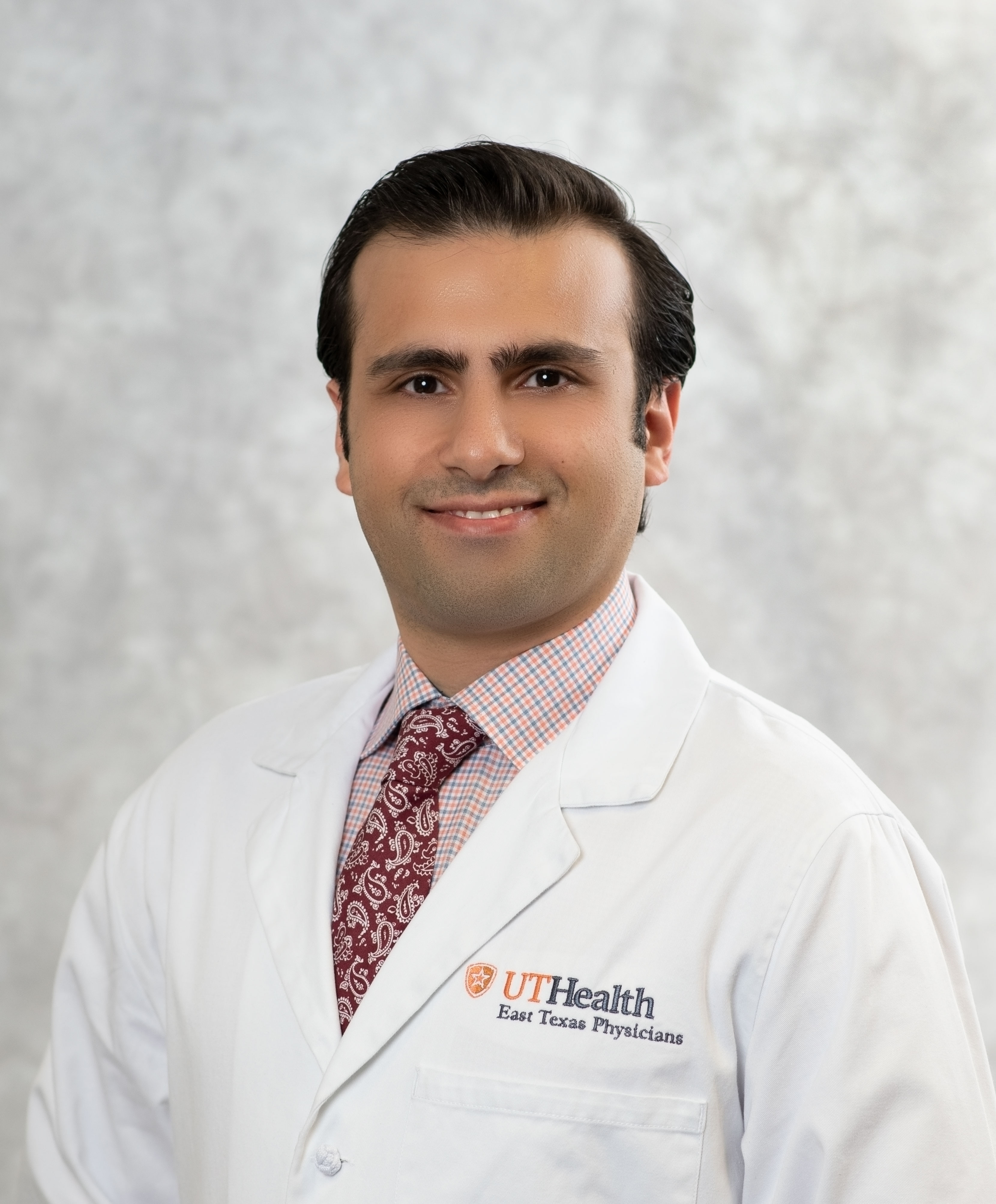
You see awareness events and articles for breast cancer and lung cancer all the time, but this month we are here to spread important information on colorectal cancer. Colorectal cancer is the third most commonly diagnosed cancer in males and second in females, with 1.8 million new cases in 2018. (World Health Organization) It is also one of the most fatal cancers, leading to 50,630 deaths in the United States, making it the second leading cause of cancer deaths.
Dr. Umair Sohail, gastroenterologist at UT Health, answers some big questions about who’s at risk for colorectal cancer and how you can get tested.
What is colorectal cancer?
Colorectal cancer is a cancer that starts in the colon or the rectum. These cancers can also be named colon cancer or rectal cancer, depending on where they start, but are often grouped together because of their similarities. Most colorectal cancers start as a growth, called a polyp, on the inner lining of the colon or rectum. Not all polyps become cancer, and those that do may take many years. “There are two broad types of polyps,” says Dr. Sohail. “A hyperplastic polyp, which is benign and does not have potential to turn into cancer. The other type is called adenomatous polyp, which has the potential to turn into colon cancer. These cannot always be distinguished reliably by gross appearance and therefore a biopsy/removal is required for diagnosis.”
Am I at risk for developing colorectal cancer?
There are several risk factors for developing colorectal cancer, with age and family history being the most significant. “Age is a major risk factor for sporadic CRC,” says Dr. Sohail. “More recent data from the United States Surveillance, Epidemiology, and End Results Reporting (SEER) database and other Western cancer registries suggest that CRC incidence is increasing in the under age 50 group while it is decreasing in older groups.”
Family history should also be considered when deciding on when to start screening. “Patients with a personal history of CRC or adenomatous polyps of the colon are at risk for the future development of colon cancer. It is commonly believed that patients who have a family member with an adenomatous colonic polyp may also be at increased risk for adenomas or cancer,” says Dr. Sohail. In addition to these two considerations, lifestyle choices can also have an impact on risk levels.
There is data to suggest that long-term consumption of red meat or processed meat increases your risk of colorectal cancer. Smoking is also a habit linked to this cancer. A good way to take care of your colon is to make sure you are getting enough fiber in your diet. Eat vegetables high in fiber, as well as whole grains, seeds and beans.
How do I prevent colorectal cancer?
The good news is that death rates for colorectal cancer have been declining since the 1980s. The reason for this decline? More people are getting screenings. “Many people don’t realize that this second leading cancer is highly preventable,” says Dr. Sohail. “Few Americans know that colorectal cancer can be prevented, not just detected through colonoscopy.”
A colonoscopy is an exam to detect changes or abnormalities in the large intestine (colon) and rectum. During a colonoscopy, a long, flexible tube (colonoscope) is inserted into the rectum. A tiny video camera at the tip of the tube allows the physician to view the inside of the entire colon. The physician may also remove polyps or other types of abnormal tissue during a colonoscopy. Biopsies can be taken during this procedure as well. (Mayo Clinic)
When should I get a colonoscopy?
Getting a colonoscopy is crucial in preventing colorectal cancer, but screenings do not have to begin until later in life. “At present, most guidelines do not recommend screening for asymptomatic individuals under the age of 50 unless they have a positive family history or a predisposing inherited syndrome,” shares Dr. Sohail. “However, in 2018, the American Cancer Society issued a "qualified" recommendation to begin screening persons at average risk for colorectal at age 45.” After your first colonoscopy, the physician may recommend you take another in ten years. There are also other tests you could choose to check for colorectal cancer, including stool based studies, blood based and radiological imaging. However, a colonoscopy is highly recommended.
Colorectal cancer affects thousands of Americans every year, but this cancer is highly preventable if you have regular colonoscopies. If you are 45 or older and have not had a colonoscopy, contact your physician and find a time to schedule the test.
To find a UT Health gastroenterologist and make an appointment, call 903-596-DOCS.
Umair Sohail, MD, is a gastroenterologist who practices at UT Health East Texas Physicians Tyler. Dr. Sohail provides diagnosis and treatment of complex gastroenterology and liver-related diseases, and performs diagnostic and therapeutic endoscopic procedures. He is also a co-author of a gastroenterology textbook and has written for medical journals. “I strive to provide excellent care through patient education, dedication and compassion.”


